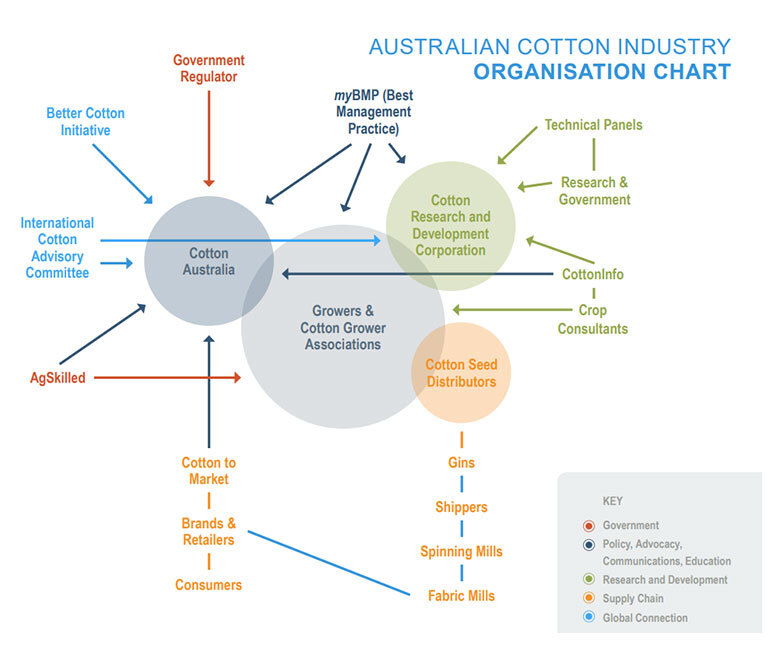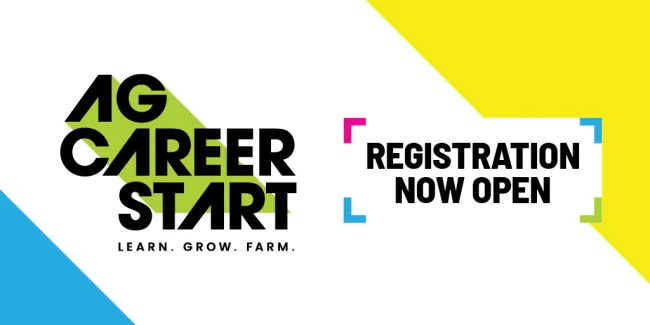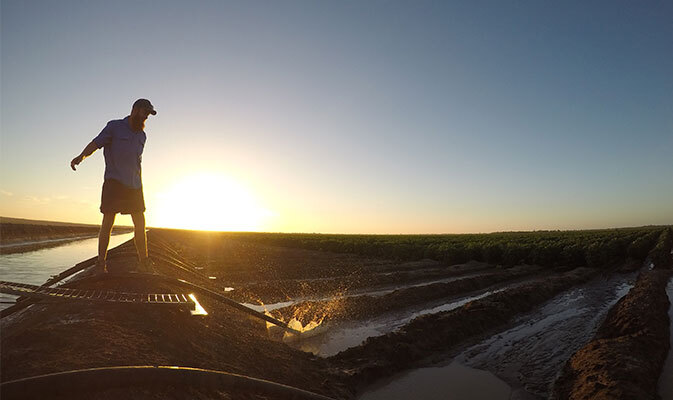Careers & Scholarships
The Australian cotton industry encourages new people to join our industry who have a passion to innovate, work collaboratively, and help clothe and feed our growing population in a more sustainable way.
Career opportunities
Australian grown cotton is globally known for its high-quality lint and sustainability credentials. The Australian cotton industry’s work force is critical to sustaining the industry’s competitive advantage. Innovative, resilient, and adaptive people, businesses and communities are crucial to the future success of the industry.
What jobs are there in cotton?
The Australian cotton industry’s work force includes on-farm labour, as well as the service industry and supply chain, which represents an extensive network of input and advisory providers that support cotton farmers (such as agronomists, researchers, consultants, agribusiness and state government agencies).
Cotton careers can be grouped into seven categories, as shown in the PERFECT Cotton Careers infographic, to show the key jobs that are involved in the cotton industry:
- Policy
- Education and Training
- Research
- Farming and Finance
- Extension and Advisory Services
- Communication
- Technologies and Trade
Each of these categories have different focus areas and pathways, and shows that the industry needs people with a huge range of skills and knowledge.

Cooperation and collaboration are fundamental to the success of the cotton industry in Australia, and it is well known for its transparency and sharing of information right across the supply chain. To achieve success, growth, and sustainability long-term, the industry works together to proactively address tomorrow’s challenges. The Australian Cotton Industry Organisation Chart serves as a guide to demonstrate how everyone, from the growers to the government regulatory bodies interact to create world class cotton.

Workforce attraction on a cotton farm
The dynamics of the industry’s work force varies depending on factors such as season, location and business size.
Cotton growers generally attract employees using a range of tools, including word-of-mouth, employing local youth and school students as trainees, using recruitment specialised labour hire companies, and webpages such as Seek, Facebook and Gumtree. They use a range of strategies to retain staff, which may include attractive salary packages that often include on-farm accommodation and meals, training, flexible working arrangements, mentoring, opportunities to have a stake in the business and/or promotion.
For people that have not grown up on a farm or in a rural region, it can be difficult to imagine what a career or casual position on a cotton farm looks like. A great place to start researching is the People in Agriculture website, looking under the Guide for Employees tab.
To learn more about a job in agriculture, Career Harvest has case studies, videos and job descriptions to help you understand the variety of roles and responsibilities in the farming sector.
AgCareerSTART

Cotton Australia is proud to partner with the National Farmers’ Federation to support AgCareerSTART Farming gap year.
AgCareerSTART is a structured gap year program encouraging young Australian to try a career in agriculture by connecting them to jobs on Australian farms.
Delivered on behalf of the Australian Government, the program matches young career seekers with a host cotton farm where they can work, live and study.
On top of the skills, experience and mentoring you will receive working with your farm-host, you will also be provided FarmSafe’s basic safety training and support to complete a VET course relevant to your farm and interests. There will be many opportunities to build your network and access to significant industry events such as the National Farmers’ Federation Conference, AgFEST and AgQuip.

Off-farm jobs in cotton
Both skilled and unskilled positions are required to maintain the cotton industry’s competitive advantage. Cotton researchers actively engage in the future direction of agriculture in emerging areas such as digital technologies, robotics, and innovative engineering.
Unskilled roles in cotton research can include hand-picking cotton, bug checking, or data input. These roles can be either indoors or outdoors.
Artificial Intelligence is one example, as more farmers use technology to provide them with a competitive edge. Information technology graduates are also needed to develop the tools that the modern farm requires. By using robotics combined with AI, farmers can access better information about crop yields and they are better able to project their eventual income levels.
The use of drones is now commonplace, as farmers apply the technology to everything from property security to water, soil, and plant management. The need for people entering agricultural career options with backgrounds in the science, biology, chemistry and physics fields – allowing them to better understand soil management and plant growth – is becoming critical as global markets adapt to climate change.
Seasonal work in cotton gins
Cotton gins are factories that complete the first stage of processing cotton – separating the lint from the seed. Both skilled and unskilled workers are required during peak times, generally from Autumn to Winter, after the cotton crop is picked. Gins are located in cotton growing regions to avoid costly transport, so you will find cotton gins close to where cotton is grown.
Gin workers tend bale presses and remove the processed bales from the gin. They perform machine maintenance and ensure smooth running of processing operations. They operate forklifts and moon-buggies to transport cotton from the holding yard into the gin. As a cotton gin has to go through many procedures, a number of employees are required to participate in this process, making job opportunities arise. This work is great for seasonal jobs, and all training is done on-site.
Pathways
Agriculture has career pathways from short courses, Certificate IIs, through to diplomas.
Universities, TAFE’s, Registered Training Organisations and colleges around Australia offer a range of options.
